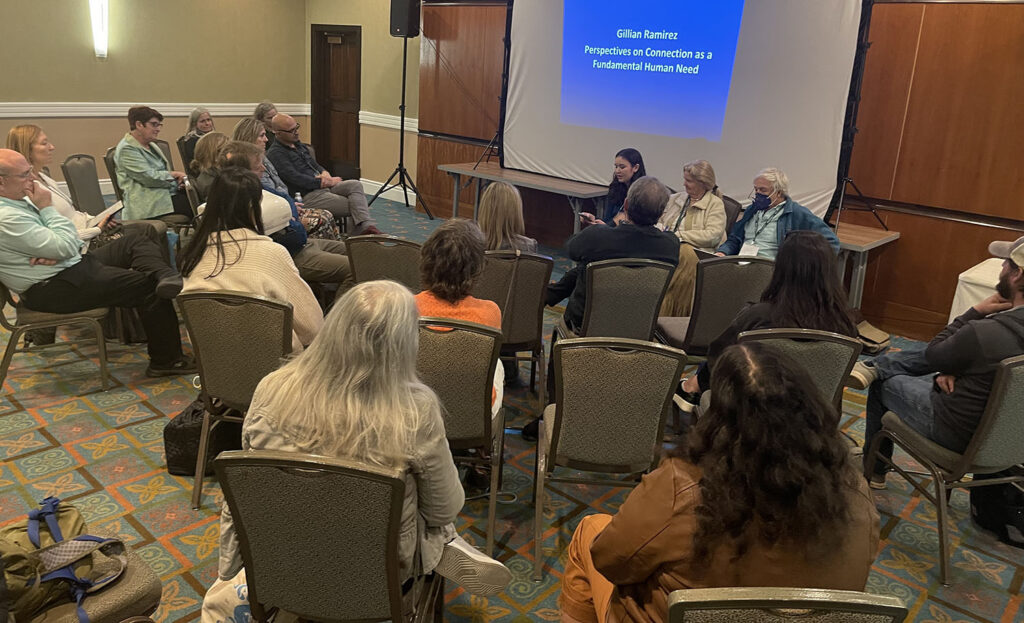
By Alliance President Terry Gips and Intern Gillian Ramirez from UC San Diego
There are some simple steps we can all take to meet our fundamental needs, transform our lives and live in harmony with our world. We can also save money, reduce our consumption addiction (“affluenza”) and increase well-being. Terry Gips, Gillian Ramirez and Susan Eirich shared how in a Nov 30 presentation at the American Sustainable Business Network Conference in San Diego, “The Real Bottom Line: Meeting Our Fundamental Needs While Bringing about Personal and Organizational Transformation.” You can see a PDF of the presentation here
Terry shared about Maslow’s Hierarchy of Needs, beginning with physiological needs and then moving up to safety and ultimately to self-actualization. Terry took it to the next level by sharing about the profound and inspiring Fundamental Needs work of Alternative Nobel Prize-winning, Chilean economist Dr. Manfred Max-Neef, which has been used by companies like Interface.
Rather than seeing a hierarchy and the need to satisfy a fundamental need before moving up to the next higher one, Max-Neef posited that there are essentially 10 fundamental needs: subsistence, protection/security, affection, understanding, participation, leisure, creation, identity/meaning, freedom and transcendence. Max-Neef suggests that these needs are always present in everyone although they make seek to fulfill one or more at any time. They are all well-captured in this transformative one-page poem by Ed Kopp.
The good news ecologically is that it is possible to actually have more satisfaction with less stuff. It’s not the materials and energy that provide satisfaction, but the degree to which fundamental needs are met.
While many people practice voluntary simplicity, asking the public to sacrifice and live with less can be a challenge. Instead, we can speak with a powerful, attractive message of abundance: Would you like more of what you’ve always wanted (learning, laughter, meaningful work and safe, healthy, and attractive communities and environments) and less of what you never wanted (expense, stress, pollution, injustice and fear)?
Susan Eirich, Ph.D., Founder and Executive Director of the Earthfire Institute Wildlife Sanctuary and Retreat Center on the western flank of Grand Teton Mountains, then built upon this and shared how connection and relationship with nature is a fundamental human need. She feels “we urgently need to slow down because that’s where real insights and solutions lie. What we’re doing is going in the exact opposite direction and never dealing with the fundamental shift that needs to be made. We need to connect to each other and nature.”
Gillian Ramirez then shared how fulfilling our fundamental needs is critical to meeting our full potential. She shared about connection and the importance of depending on others: “As someone with a rich internal world, it is easy to self-isolate and dismiss the value in real connections. The isolation caused by COVID has also decreased our social battery. Fulfilling fundamental needs requires that we check in with ourselves to see how we can be more present and foster an environment of affection, understanding, freedom and other fundamental needs.”
